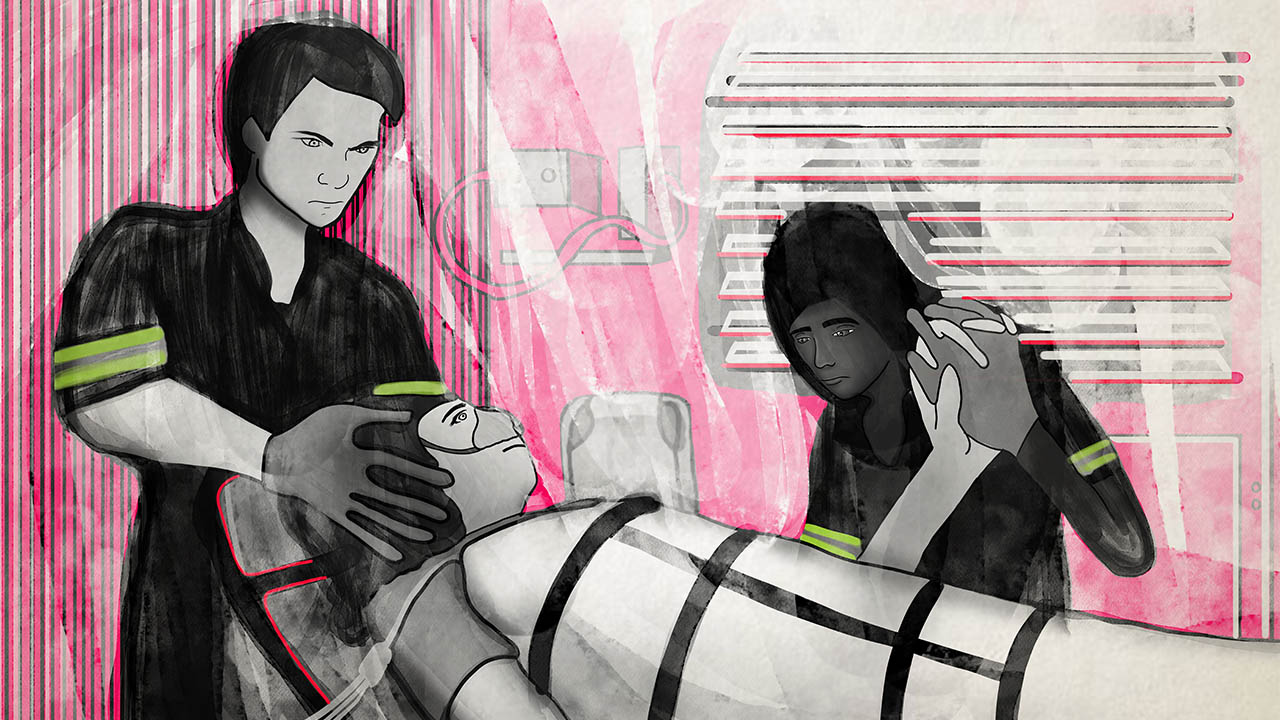Paramedics and mental health: A closer look
 CREDIT: CALEIGH REID
CREDIT: CALEIGH REIDParamedics go through a lot mentally, and that's why there are so many practices in place to help them manage their emotions.
There is a saying that states that things in our work life should be left at work and not thought about at home during off hours, but for some, that’s easier said than done. Many lines of work, involve high amounts of stress and intense situations, requiring employers to be on the clock 24/7, with little to no time to rest.
In the paramedic workforce, for example, employers have mental health services available at any time for workers to use in a time of crisis. Paramedics, alongside other first-responder groups, are on the frontlines of some of the most intense and grim situations. They are exposed to things that most would not be able to handle or see things that are very emotionally straining.
Paramedics have reported heightened anxiety, depression, and post-traumatic stress disorder (PTSD) as detrimental factors of their work. At the Middlesex-London Emergency Medical Services (MLEMS), they offer a diverse number of programs for their medical personnel who are in need of help during a crisis.
Samantha Vollick, the Public Education Coordinator from MLEMS gave insight as to what kinds of programs they offer to their medical personnel when they are going through a time of need.
“We have a peer support team,” she said. “We do training on mental health support, after-hours calls we do debriefing with the peer support member who’s trained in critical incident stress management. We also have a psychologist who is on board with us that we should have referrals to in order to help support someone in immediate crisis.”
With paramedics working under pressure many hours at a time, they are moving on from case to case at a rapid pace. Many of them are just taking patients to the hospital, dropping them off then moving onto their next call, never knowing what happens to the person they were helping. So, in an effort to offer closure for paramedics who wanted to learn of the well-being of the people they helped, Survivors Day was created. The day connects with survivors with the paramedics who saved them, giving both parties the chance to gain closure over a traumatic event.
“It’s always a very positive day. You don’t usually have a lot of follow up with patients after we drop them off at the hospital. So, I know it does have a positive impact,” Vollick said.
Despite having thick skin, there’s only so much one’s mind can bear. A work environment, of any kind, is a community that looks after and takes care of their own, and paramedics do an incredible job of this.

















